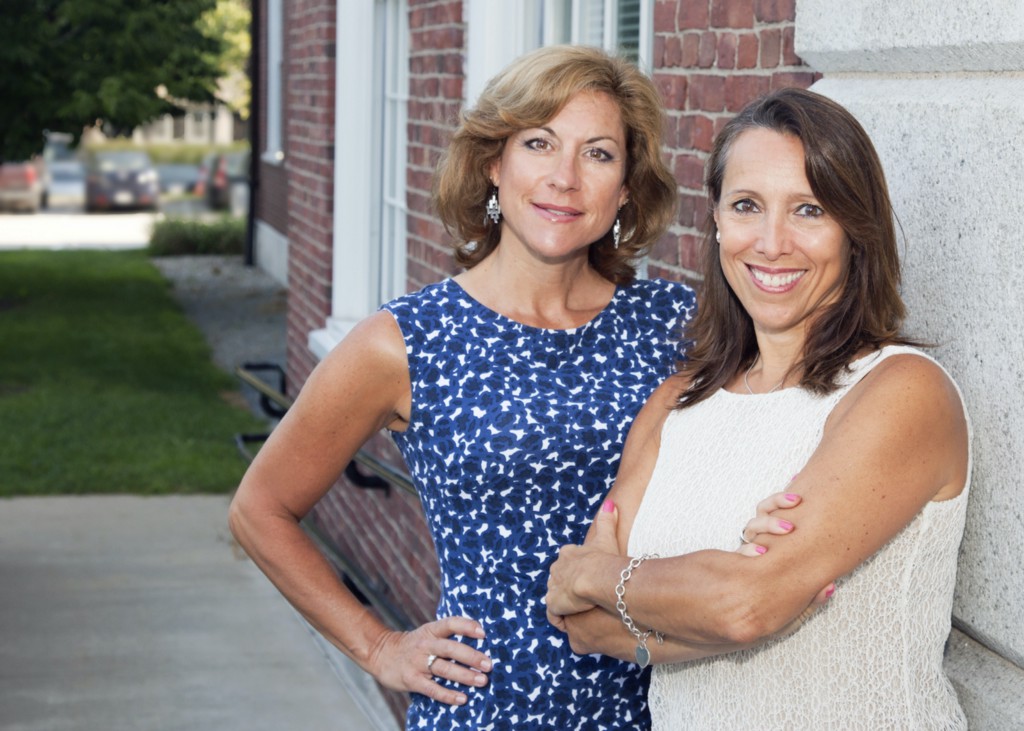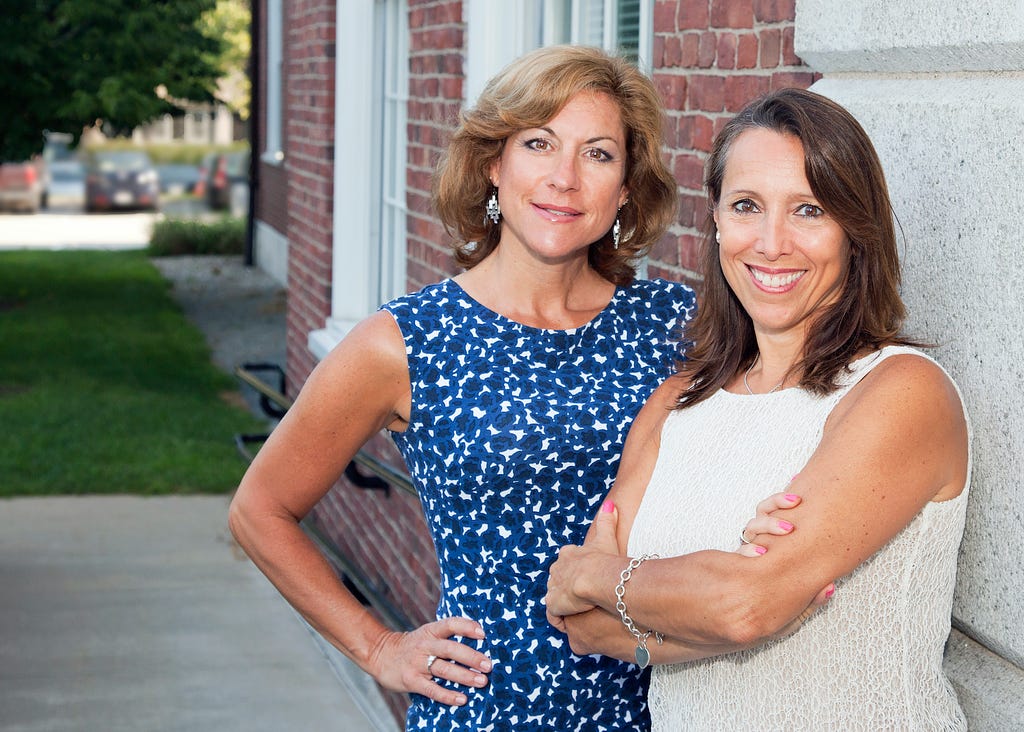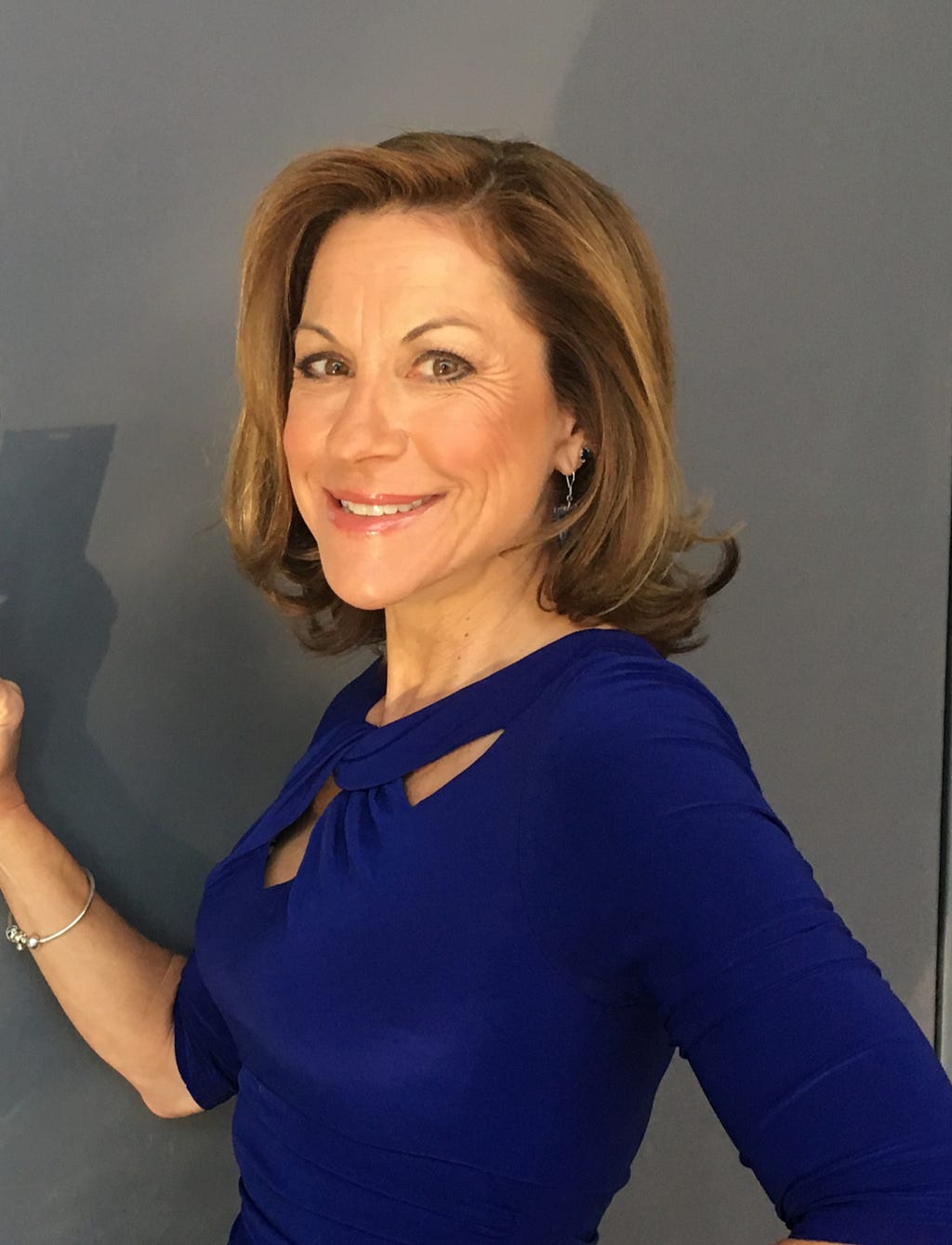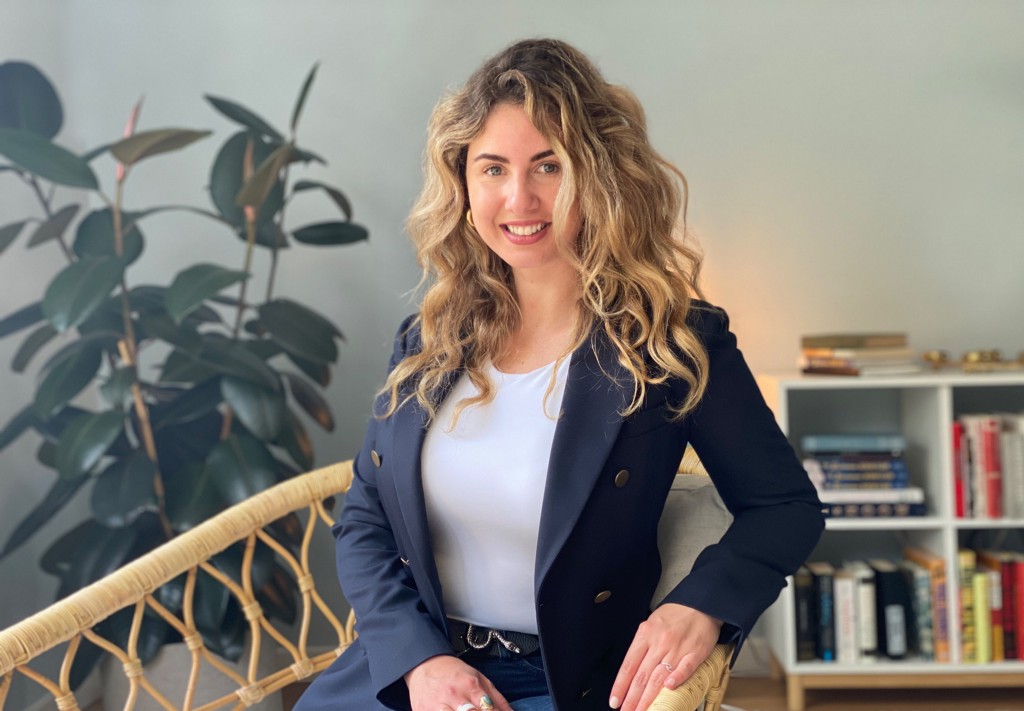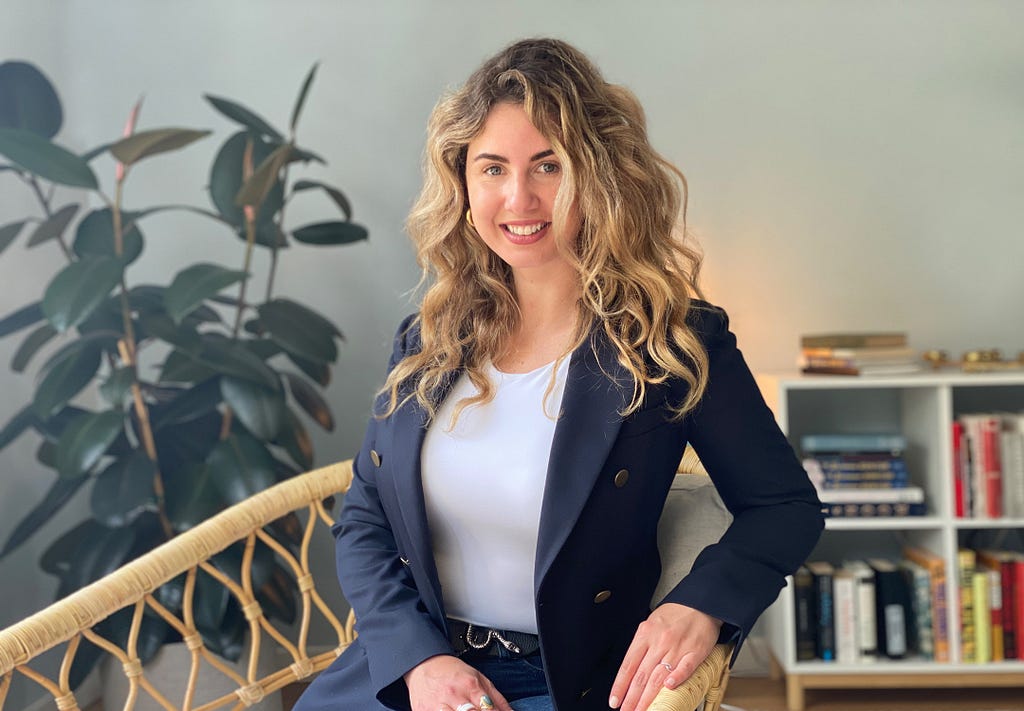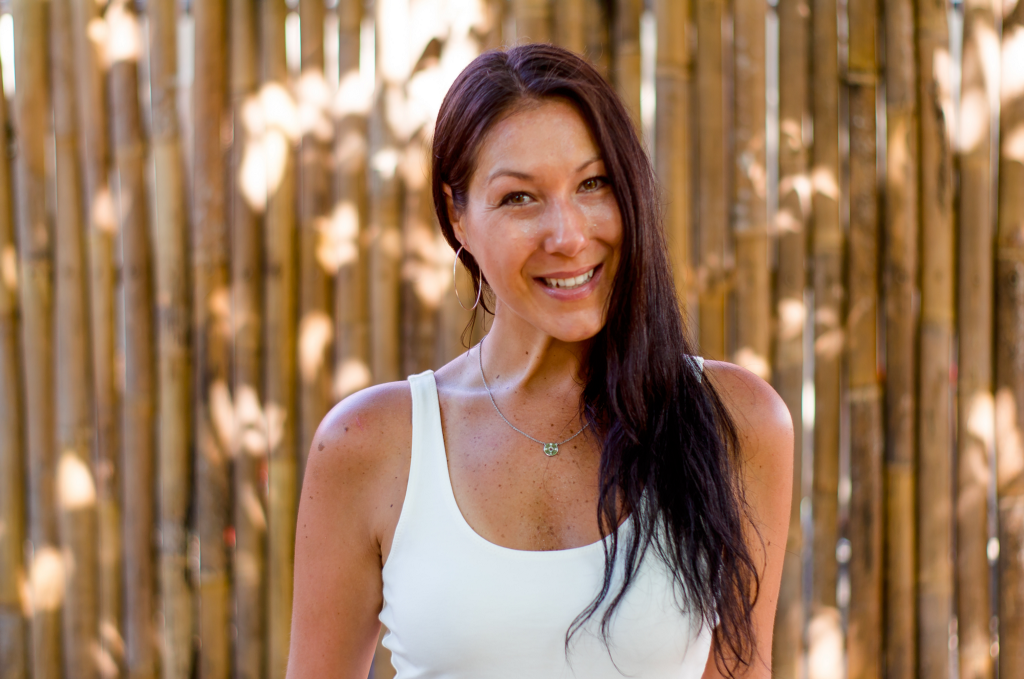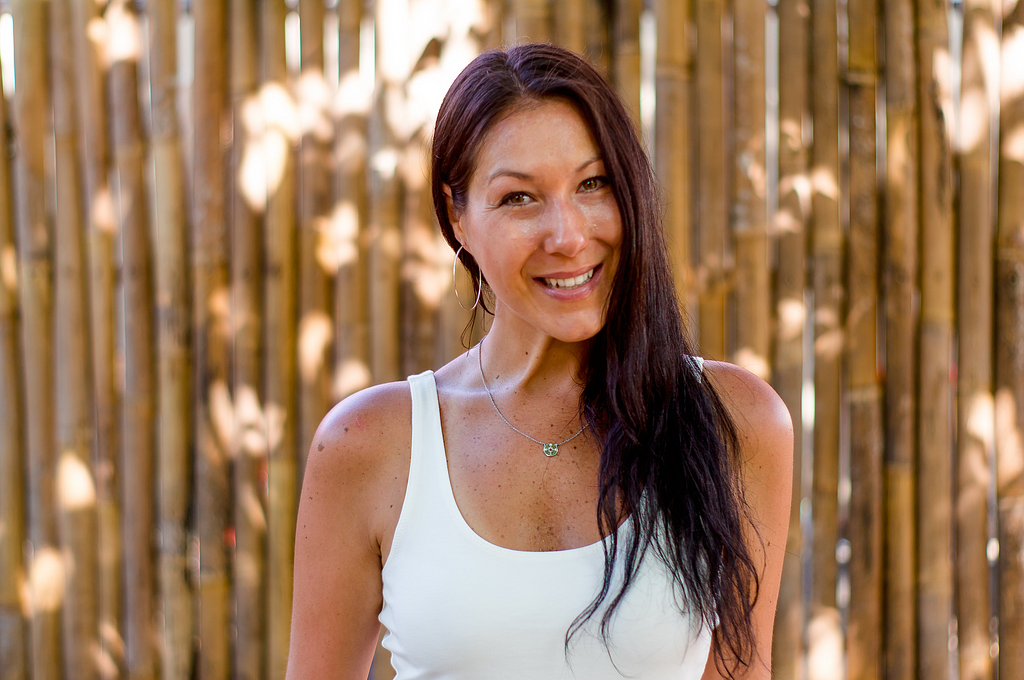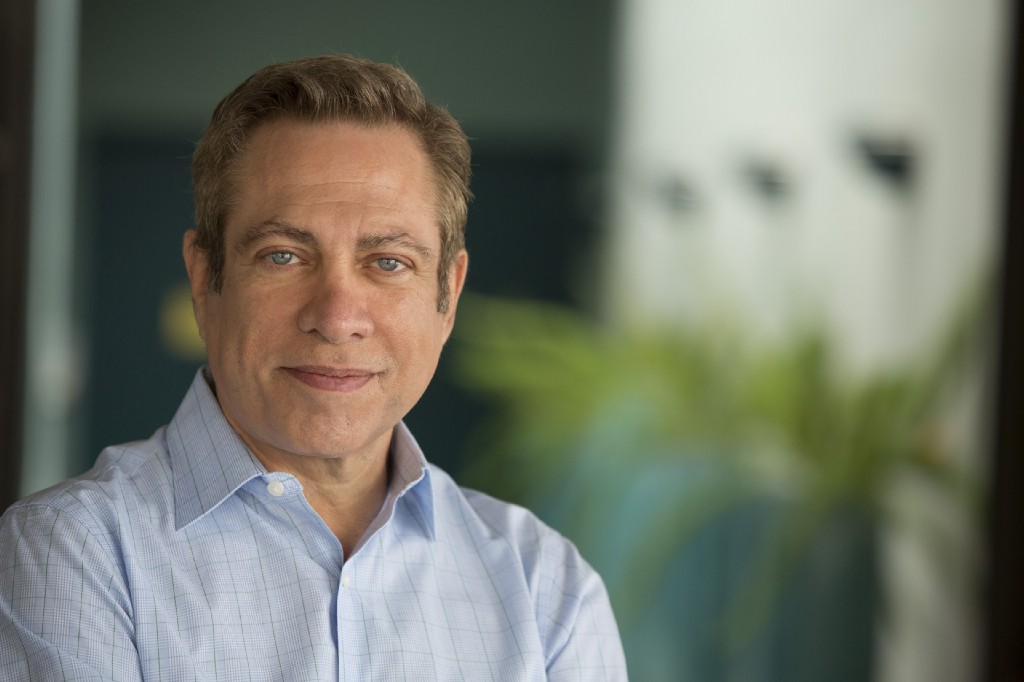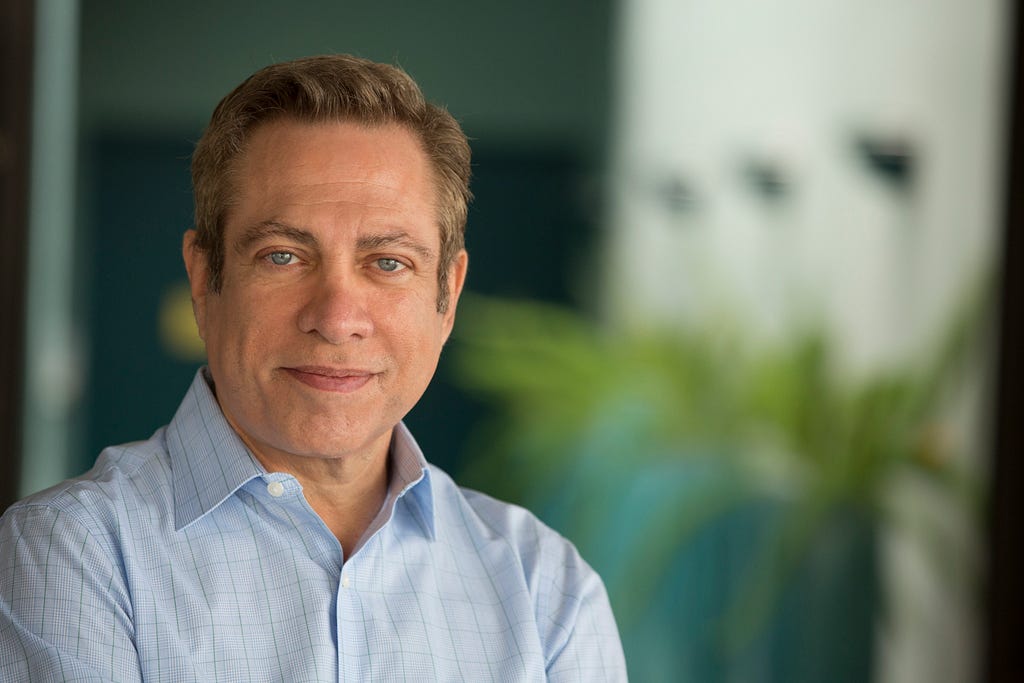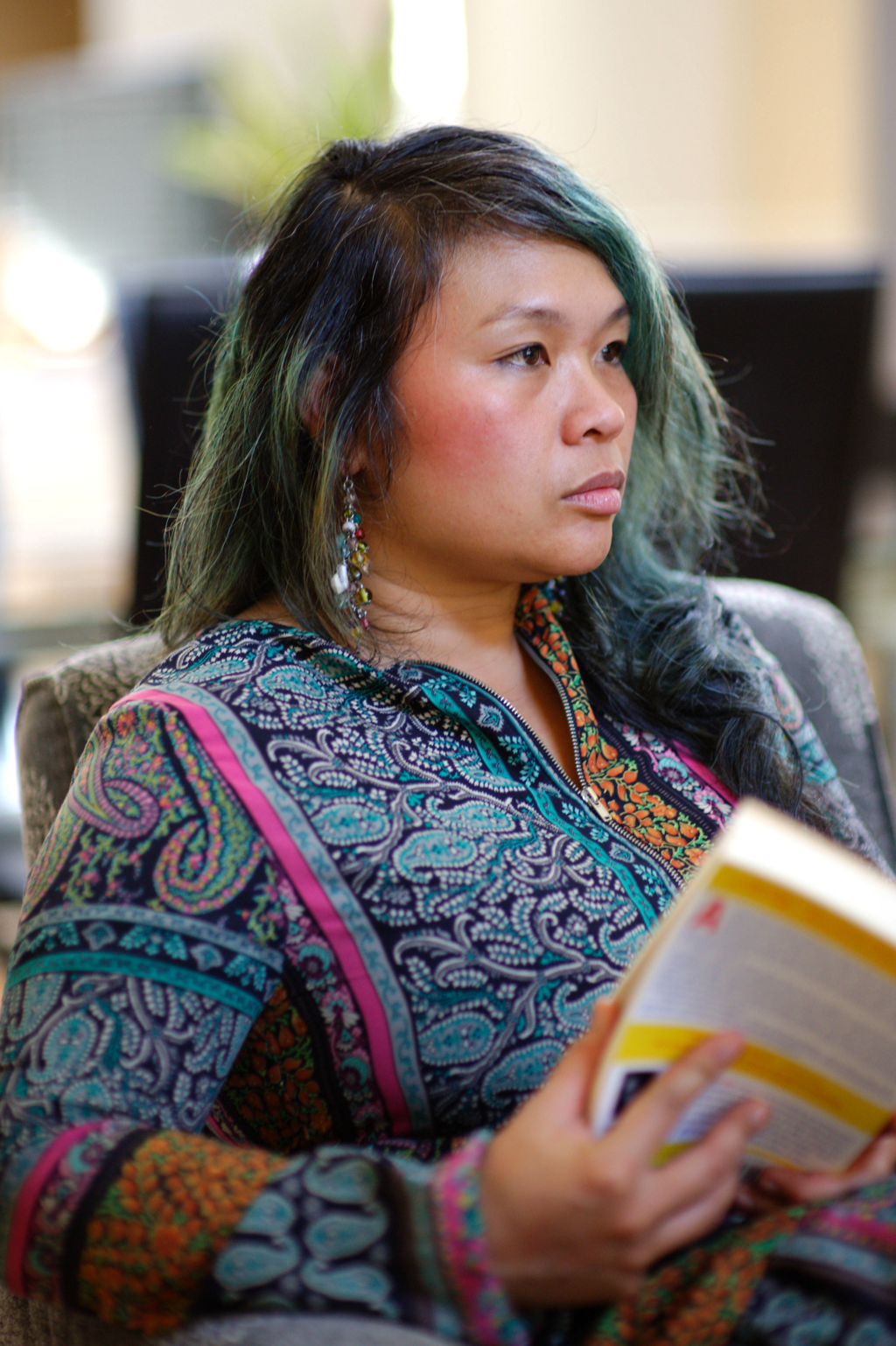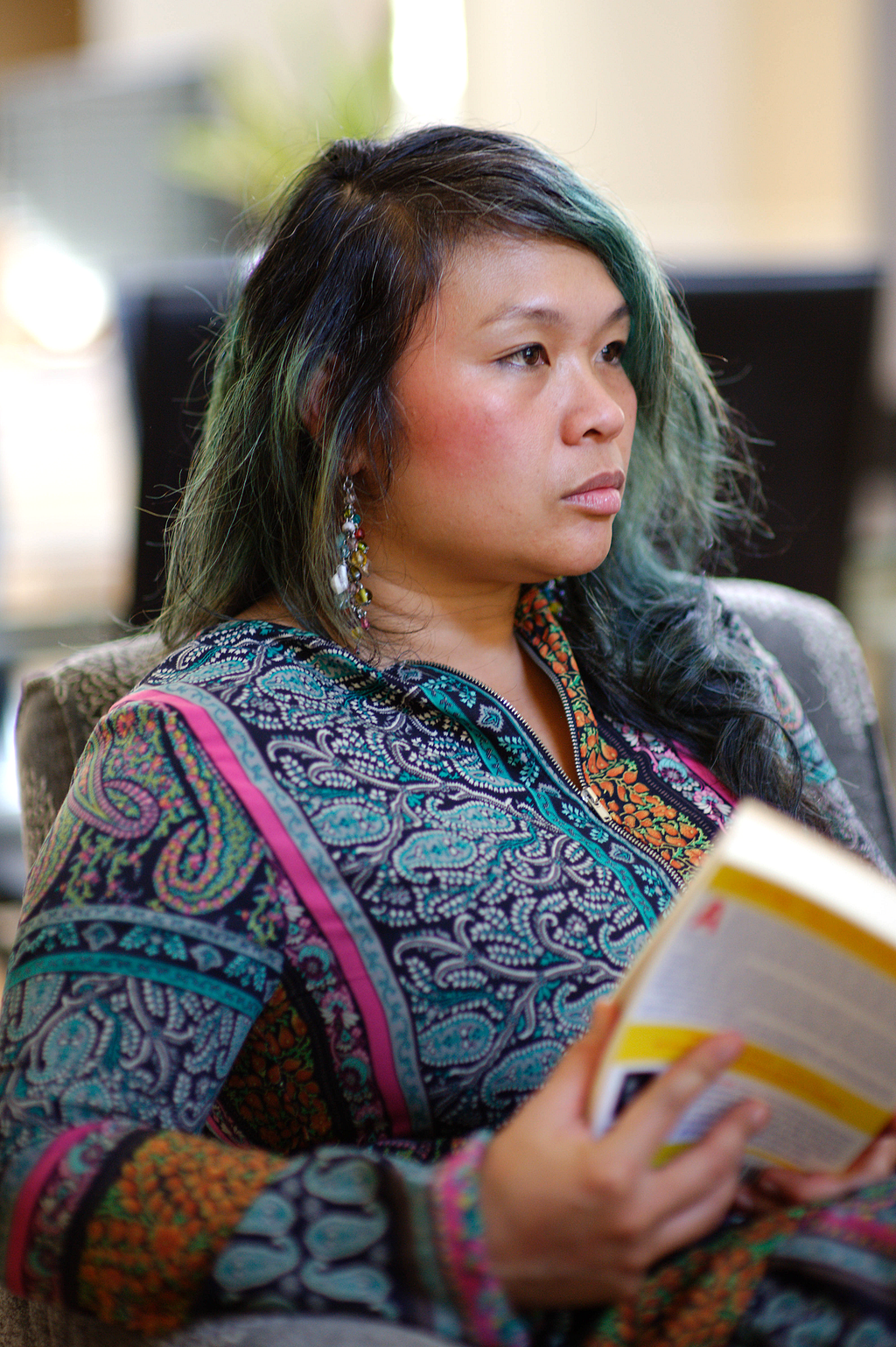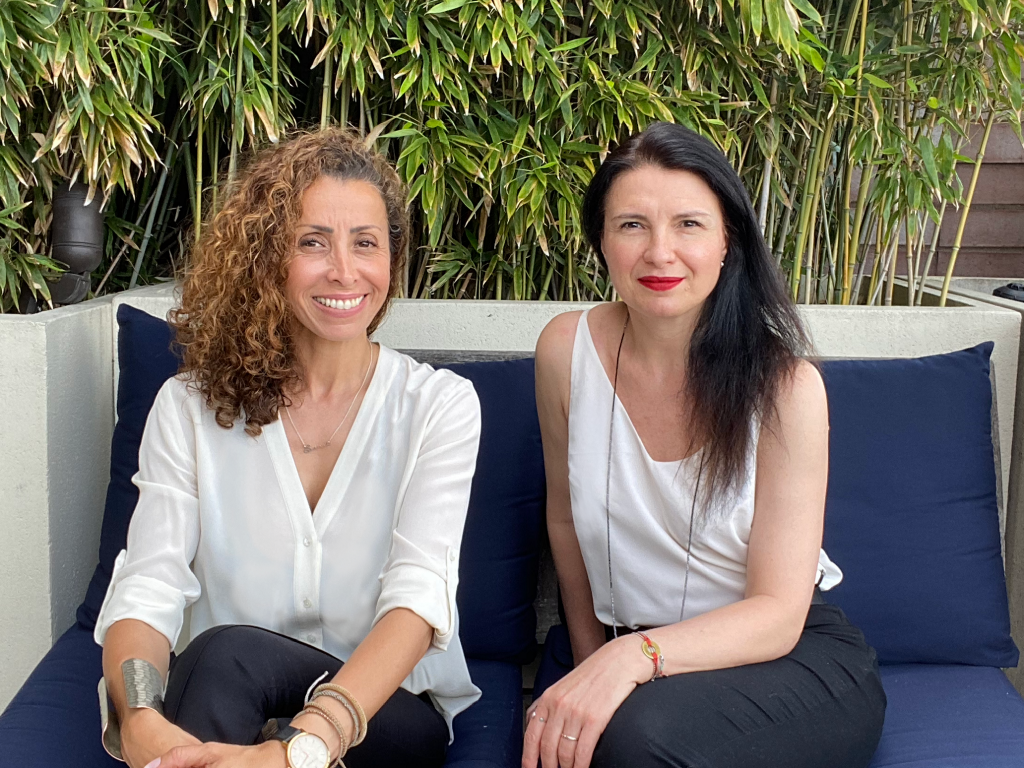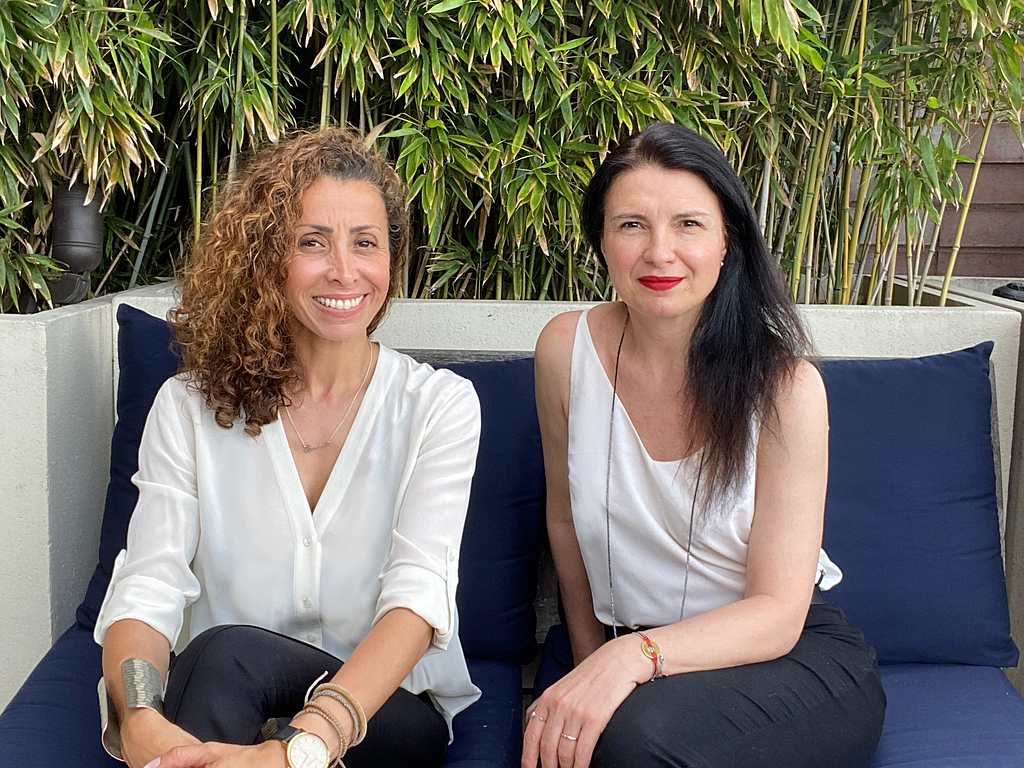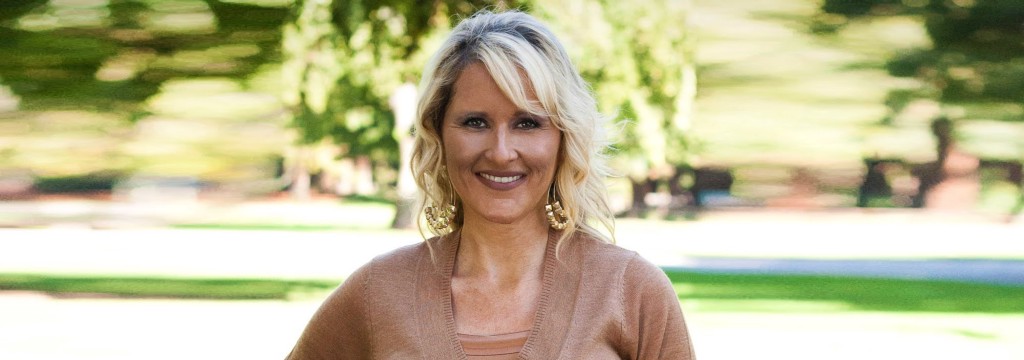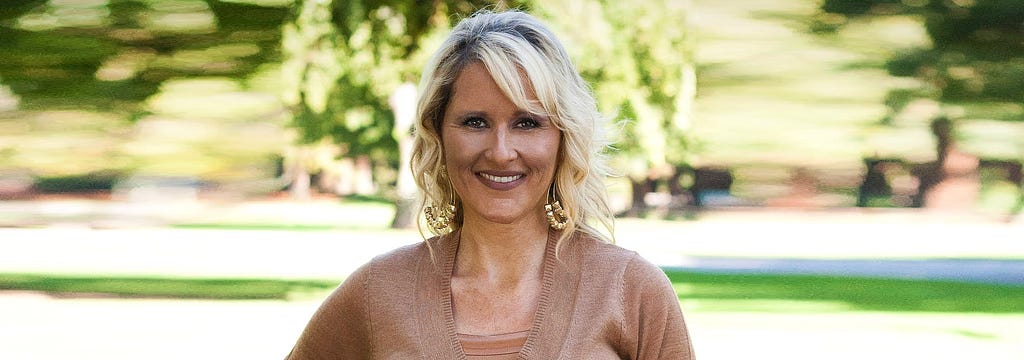Female Disruptors: Amanda Hudes of ‘Smiling Through Chaos’ On The Three Things You Need To Shake Up Your Industry

I am disrupting the Event Planning industry by being different. I’m not just an Event Planner. I’m not just a Wedding Planner. But I’m also not just a Wellness Coach. I am an all-in-one Planner and Coach, and that can be confusing to those who don’t yet understand me or Smiling Through Chaos. We CAN be more than one thing. We CAN be knowledgeable, and crazily enough, we can have expertise in more than one area.
As a part of our series about women who are shaking things up in their industry, I had the pleasure of interviewing Amanda Hudes.
Event and Wedding Planning Expert and Wellness Coach, Amanda Hudes, helps women and couples smile more, stress less, and look and feel their best during their event planning experience. She is the Founder of Smiling Through Chaos LLC, as well as the author of Amazon Bestseller, “Smiling Through The Chaos of Wedding Planning.” Amanda utilizes her passion, experience and education to help people celebrate life to the fullest, focusing on the positive and the solution to any challenge.
Thank you so much for doing this with us! Before we dig in, our readers would like to get to know you a bit more. Can you tell us a bit about your “backstory”? What led you to this particular career path?
I’ve had an extremely diverse career. We don’t know why we are led down certain paths until we reach a point where we say, “Aaah, this is why.”
Earlier in my career, I worked in Media Planning, Fashion, Office Management, and as a Senior Executive Assistant, and each opportunity allowed me to learn new skills, from managing several projects simultaneously to hiring office staff to focusing on each number in a spreadsheet to the highest level of detail, for if one number was wrong, the entire project would need to be started over again. If I hadn’t worked in the corporate world, I would not have the organizational and professional acumen I have today in order to run a successful business.
But let’s go even further back, back to where the passion stems from. I grew up in a very happy and stable household, with a wonderful support system. It wasn’t until later in high school when I went through a major change. I was in an unhealthy relationship, my friendships were changing, my dog passed away, and my siblings were off to college. I became depressed. As I grew stronger and came out of the depression, I realized how precious life is, and it became very important to me that I help others celebrate life. I did a lot of self-reflection, which I realized will be a lifelong priority to continue doing, and I started focusing on the positive, on the “happy.” I had to go through that challenging time in my life to really appreciate what I had and to go after everything I want in life. Nothing should be off limits. We are here for a reason, so why not “make it happen?”
“Smiling Through Chaos” was developed as I decided to leave the corporate world and focus on using my experience planning corporate and personal events, creating customized and unique weddings and events, along with my expertise in nutrition and wellness, to help people enjoy the experience and release the stress. My clients feel my passion from the first time we speak. And I will go above and beyond to make sure they are excited about their event and confident in themselves.
Can you tell our readers what it is about the work you’re doing that’s disruptive?
I am disrupting the Event Planning industry by being different. I’m not just an Event Planner. I’m not just a Wedding Planner. But I’m also not just a Wellness Coach. I am an all-in-one Planner and Coach, and that can be confusing to those who don’t yet understand me or Smiling Through Chaos. We CAN be more than one thing. We CAN be knowledgeable, and crazily enough, we can have expertise in more than one area. When I first founded Smiling Through Chaos, I had several people try to sway me into separating my business because “Some people won’t get it,” or, “It’s too confusing online.” You see, I had combined my experience in Event Planning and my former business in Nutrition and Exercise Guidance to create one that would help people have gorgeous and enjoyable events while also helping clients feel and look their best, and that isn’t something you see every day. But that’s what I bring to the table. That’s what makes Smiling Through Chaos so different.
When it comes to social media, I’ve also had marketing experts guide me to separating out Event Planning from Wellness, creating different social media handles. But a few months ago I was asked to look internally again, and I brought them back together in social media, because that’s what Smiling Through Chaos is all about, helping people celebrate life. When you view and follow Smiling Through Chaos, you can instantly see that it isn’t like most of the Event and Wedding Planning social media handles. And that’s intentional. If you know me, you know I have never EVER had the desire to be like everyone else. There is only one you, so why try to be like someone else? Smiling Through Chaos is more than just a brand, it’s a lifestyle, so when you follow Smiling Through Chaos, I want you to feel happier, I want you to feel inspired, I want you to feel empowered, and sure, I want you to eat healthier and work with me on planning your next event, but it’s just so much more than that. We all have a reason for being here, and mine is to help you smile bigger.
Can you share a story about the funniest mistake you made when you were first starting? Can you tell us what lesson you learned from that?
I remember coordinating a wedding at a vineyard. I was hired only a few weeks before the big day, so I didn’t do a walk through at the venue with my clients, and when we drove in, I realized that it was much colder than I had thought it would be. Coming from a fashion background and education, I don’t dress in the usual Wedding Planner black outfit. I wear an outfit that goes with the theme or style of the event, so for this wedding, I was wearing a long floral dress that was fitting for the setting. My client loved it. But as the night progressed, I started getting really cold! It was an outdoor wedding in the Fall, but I had been so focused on what I needed for my client that I hadn’t thought about what I needed so I could focus on my clients and not on being freezing! I ended up wearing my faux fur coat over my dress, but that wasn’t the worst of it. I don’t drink much coffee (Kale is my coffee), but that night, I can’t even tell you how many cups of coffee I was drinking to stay warm as I moved around the wedding, making sure guests were enjoying themselves and the couple was having the best time.
I realized from that experience that when we consider ourselves in the mix, we can make everyone happier. Now, as part of my list of items to bring to a wedding, I have 2–3 pairs of shoes in case I get blisters, something to layer with so I am not wearing a coat around, and other practical items. If I am not set with the items I need, I cannot be as good to my clients. As in any relationship, we are at our best for others when we also treat ourselves right.
We all need a little help along the journey. Who have been some of your mentors? Can you share a story about how they made an impact?
My biggest mentors have been my parents, without a doubt. I come from a family of entrepreneurs, so I think it’s in my blood that I have a strong work ethic and am self-motivated enough to run my business. I have not met anyone who can match my father. He started his own practice, growing it to be very successful, all while supporting a family, donating his time to charities and organizations, as he continues to do to this day, and always “making it happen.” If I have a business question, I know that he is there to listen, to offer his guidance and recommendations, and to provide constructive advice. My mother is so warm, genuine, and supportive that I get emotional just thinking about the possibility of becoming half of the woman she is. She helps push me when I need more balance between my professional and family life, and she cheers me on through all of my endeavors. I could not ask for better parents, for a better example of a true partnership in life, and two people who prove that nice people don’t finish last.
In today’s parlance, being disruptive is usually a positive adjective. But is disrupting always good? When do we say the converse, that a system or structure has ‘withstood the test of time’? Can you articulate to our readers when disrupting an industry is positive, and when disrupting an industry is ‘not so positive’? Can you share some examples of what you mean?
Being disruptive in a way that is positive can be very powerful! By standing up for what’s right, helping empower others to be themselves, and being true to yourself, you are helping make a difference. Some companies try to “stay out of it,” which is their own choice, but I am a big believer in, “If you don’t stand for something, you stand for nothing,” and I’d much rather be known as someone who stands for something, especially when it comes to standing up for people. I do believe that some companies have lost trust from clients and customers over the past few months, when so many discussions over racism, police brutality, and mask-wearing or the refusal to wear them have fueled such strong emotions and they have chosen not to take a stand. I also noticed that some businesses chose to stand up for certain politicians over the past few months and that type of disruption was not widely accepted and it negatively affected their business. Everything is a choice, and I cannot say the right stance for other companies, only for my own.
Can you share 3 of the best words of advice you’ve gotten along your journey? Please give a story or example for each.
Be open to different ideas.” When I was first starting out, I kept hearing that Event Planners have a reputation of being bossy and set in their ways. When I heard that, I told myself right then and there that I would not fit that mold and I would be different from the stereotype. When I develop ideas and share them to clients and vendors, I do so in a way that does not feel intimidating. I ask for their input and opinion, and if they would like something changed, I am not offended because it’s not about me, it’s about the idea. Brainstorming ideas with vendors also creates a stronger professional relationship and respect for one another, and the developments that form from creatives working together is magical!
Remember, you could have 99 out of 100 people who love you, but that 1 who has a negative experience is the first to write a review and shout their experience to the world.” I know I’m not the norm. When I have a great experience with a business, I promote the heck out of them just because I want to help their business grow and help them succeed even more. When I was told that most people will not give a testimonial, even if they are so thrilled with the results and the experience, unless you give them a little push, I was surprised. I form relationships with my clients, so if there is anything they aren’t happy with, I work to make sure they feel comfortable speaking to me. The last thing I want is to find out someone wasn’t happy by reading a review online. Communication and trust are huge factors in creating great client relationships.
Focus on your strengths rather than looking at your competition and trying to be like them.” I remember, at the start of my full-time career as an Event and Wedding Planner, I did a lot of competitive research. What did each have that set them apart? Why were they successful? I do think it’s important to learn what makes certain businesses successful, but we each have qualities about us that make us unique, and isn’t that so much more fun to focus on? There’s room for all of us, so I say, “Lose the competitiveness and focus on what makes you stand out.
We are sure you aren’t done. How are you going to shake things up next?
I’m always shaking things up because I’m just me!
During 2020 alone, I’m launching a new website, I have a new logo, I have developed 2 new services, one for statement-making clients who have up to 50 guests and the other package for couples who want to get married now in a small ceremony and then plan forward with a larger wedding in the next year or two, I am now on the Board of Advisors of a breast cancer organization called, “Evolve Pink,” I’ve been featured in several media outlets and formats, and I’m just getting started during a year when we can just sit around and wait or we can go after our goals! I am choosing to follow my intuition and not allowing the environment around me to determine what I do in my life.
In your opinion, what are the biggest challenges faced by ‘women disruptors’ that aren’t typically faced by their male counterparts?
One of the biggest challenges is disrupting the home life by also wanting a satisfying career. I cannot say this for everyone, since there are definitely families with complete opposite situations, but for so many women, we are still expected to handle all of the children’s activities and school tasks, many of the household tasks, and more, while running and building our businesses, and balance can be very challenging.
Do you have a book/podcast/talk that’s had a deep impact on your thinking? Can you share a story with us?
FireBuilders Live is a new podcast that I’ve been following. I have to say that I have genuinely been interested in every guest Josh Koerpel has had on his show. The difference with FireBuilders is this, and I can say this because I was also featured on this show, but Josh shows sincere interest in what his guests are saying. He isn’t trying to have them finish so he can speak. He is truly listening, which you can tell in his follow up questions. He prepares for his interviews, he makes sure to have guests that have inspirational, motivational, and / or educational value, and he is very clearly just being himself, not trying to be anyone else. It’s one of those podcasts that you watch and know you need to have a pen and paper nearby because there are going to be quotes that are said that you’ll want to read over and over again.
You are a person of great influence. If you could inspire a movement that would bring the most amount of good to the most amount of people, what would that be? You never know what your idea can trigger. 🙂
I started a Facebook group called, “Bringing nice back,” and I’d love to get even more people involved. There is so much negativity online that having a place you can go to, like this Facebook page, where everything you read is positive and uplifting, can make such a big difference in your day. Join and add beautiful happenings from your day too!
Can you please give us your favorite “Life Lesson Quote”? Can you share how that was relevant to you in your life?
“Think positively and positive things will happen.” Absolutely nothing good comes from complaining or talking about bad things that “could happen.” It takes the same amount of energy to focus on the great things that can happen as the bad things that can happen, so why not focus our energy towards the great and fill our lives with more joy?
How can our readers follow you online?
Come follow me at @SmilingThroughChaos on Instagram, Facebook and YouTube! I’m also on LinkedIn, Pinterest, and I’d love to get to know you!
This was very inspiring. Thank you so much for joining us!
Thank you so much as well!
Female Disruptors: Amanda Hudes of ‘Smiling Through Chaos’ On The Three Things You Need To Shake Up was originally published in Authority Magazine on Medium, where people are continuing the conversation by highlighting and responding to this story.



